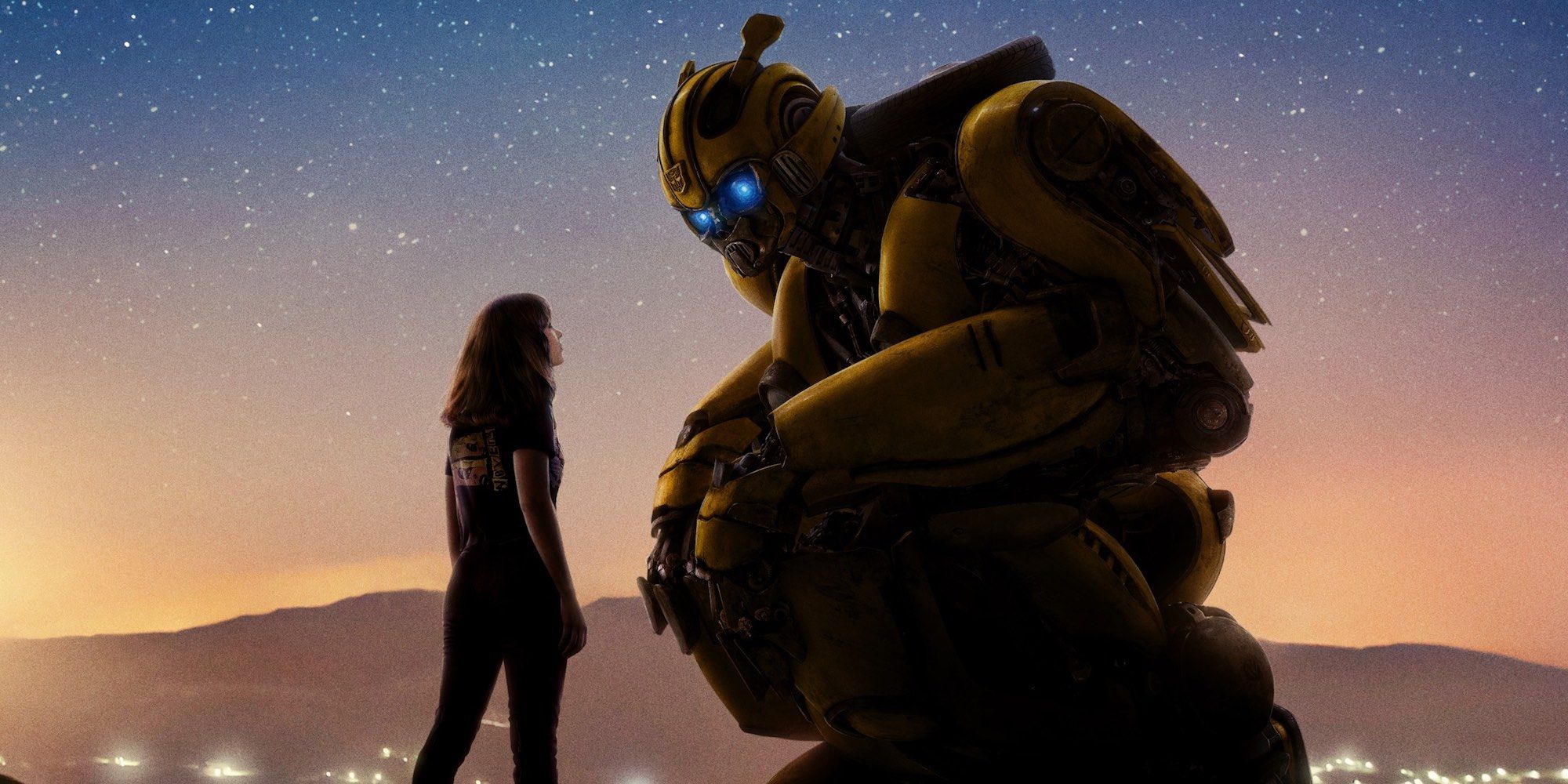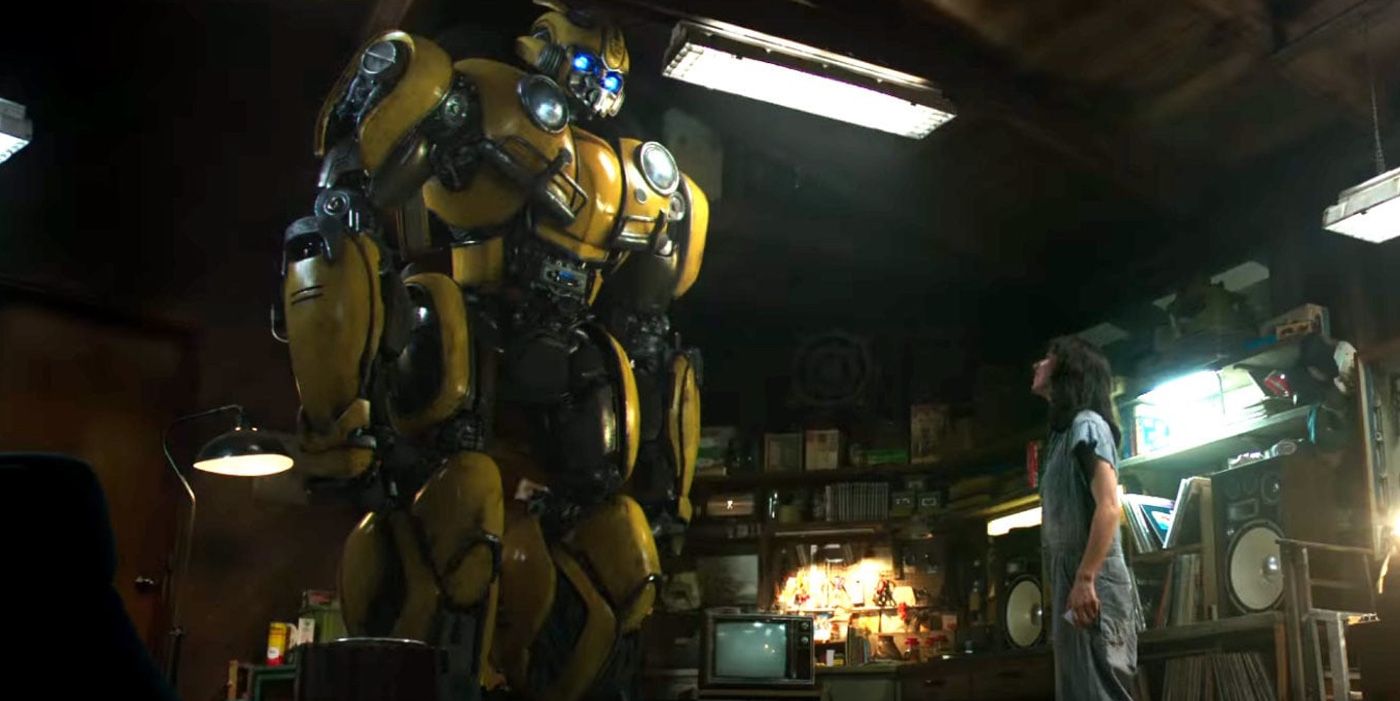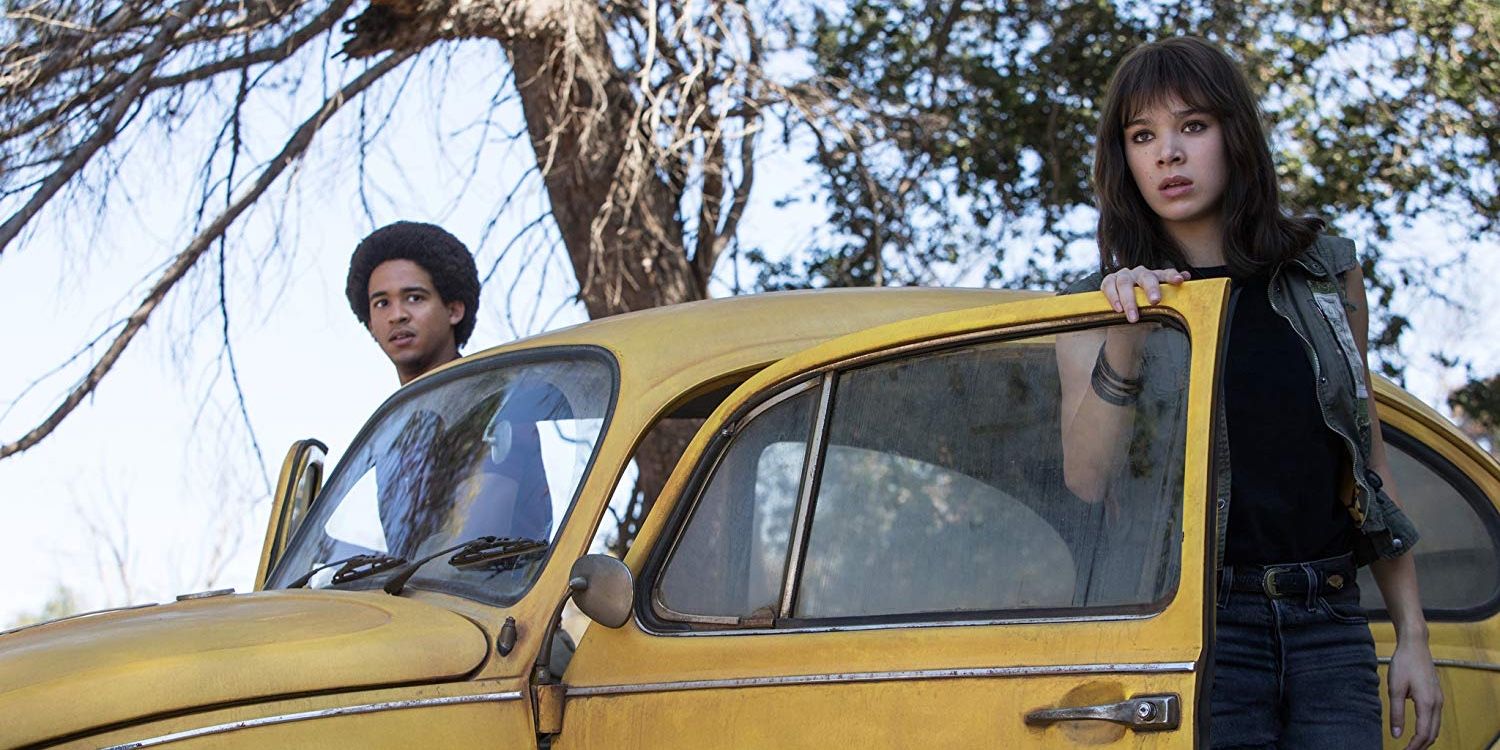Last year, Bumblebee became one of the highest-rated blockbuster movies, and much of that is owed to screenwriter Christina Hodson, who shepherded the Transformers prequel story alongside director Travis Knight that united the franchise's most famous robot with a teenage girl, Charlie, played by Hailee Steinfeld.
Set in 1987 - 30 years prior to the events of Michael Bay's first Transformers movie - Bumblebee sees the eponymous Autobot, Bumblebee, leave Cybertron and land on Earth. After encountering a Decepticon, Bumblebee loses his voice but gains a friend in Charlie, who he helps - and who helps him - grow up and become a protector.
Related: Why Bumblebee Was A Box Office Success (And The Last Knight Wasn't)
Compared to other Transformers movies in Paramount Pictures' franchise, Bumblebee was remarkably different - in a good way. Screen Rant had the opportunity to speak to Hodson about the film as well as her story choices and whether or not a Bumblebee sequel could happen in the future.
The movie starts off on Cybertron, which we haven't really seen before, at least on that kind of scale. So whose idea was that? Was that your idea or did someone else in the writer's room come up with that?
No, I mean that definitely wasn't the writer's room. That came late in the game actually. There was a different ending originally, which is on the DVD. I don't know where it came from. I think it came from a general desire to give the fans something they haven't seen before that they wanted to see before, and Travis just nailed it with that prologue. I mean, all credit to him on that. I thought that was such a fantastic opening. But yeah, originally, I think, in the very first draft we just had a scroll that kind of gave you the backstory of what was going on on Cybertron. So to see it come to life in that way was really exciting.
Then, from there, Bumblebee goes to Earth and still has his voice. Then losing his voice is a huge part of his story. How did you guys decide to make him lose his voice the way he did and so early on rather than have him keep it throughout most of the film?
We knew we wanted it right in the beginning. That was kind of always how we wanted it because the story, for me, was really about Charlie and Bumblebee. So we wanted to get into that story as soon as possible, and I knew I wanted to start them both from the place of being kind of broken. Like, it's a broken robot and a broken girl coming together and that being their arc is about them kind of healing one another. So yeah, we always knew it would be early, and the exact way it happened - that, again, is just like the magic of coming together and all the pieces that didn't use to be so specific, and that's something that kind of came about working with Travis.
Charlie and Bumblebee's relationship obviously evolved several times throughout the film, but it's almost as if it's a coming of age story for Bumblebee as much as it is for Charlie. Because in the beginning he's kind of childlike and then he becomes more of a protector. How did you decide on that?
So I've always loved Bumblebee the most because, to me, he feels a little bit like a... both a teenage kid and a Labrador puppy. You know like when they're in that awkward phase and they don't quite realize how big they are and how strong they are, and they have that kind of sweet childlike innocence but also this big physicality? I think that duality is a really fun thing to play with. So I knew I always wanted to do that, but I loved the idea of him kind of - because Bumblebee is a badass warrior. He's achieved amazing things in battle and he's [Optimus] Prime's right-hand guy.
So I wanted to see the version of, first, how did he get back to being in this childlike state and what was the journey that took him back to rediscovering who he was and finding the balance of realizing he doesn't have to be one or the other. It's not a choice. You don't have to be Bumblebee the kind of naive, clueless, innocent thing or Bumblebee the war machine; there's something that kind of lies in the middle. So it was about him finding out who he really is.
And he stays that way up until the original Michael Bay film - which is about a 30-year difference. When you guys envisioned this movie, was it always more of a prequel or kind of like a pseudo-relaunch?
You know, I am very grateful that I, as a writer, get to stay out of that. I knew I wanted to tell the story, I knew I wanted to tell it in the '80s, and I knew I wanted to free myself of too much kind of mythology and backstory and AllSpark and all of that stuff that is rich and wonderful about the franchise, but I think there was... audiences wanted to have a story that was a little simpler and about one robot. And Bumblebee was the one that people loved. So I kind of freed myself of a lot of that and let the studio make the decisions on how they would or wouldn't kind of figure it out. But, for me, it was always a standalone story that predated the other movies.
You said you always wanted to do the movie in the '80s. So why choose 1987, specifically?
Originally I actually chose 1986, and then it shifted because of references and music. I like 1986 because that was when the movie came out - the original movie came out - and that was just the one that felt right to me. But, for various reasons, we shifted it to '87.
It never really feels like... you said you wanted to distance the movie away from the franchise. So it never really feels like it's setting up one, two, or three sequels, but in the end, we do see [Bumblebee] drive off. Was it always the idea of this being just one movie or could he come back and be with Charlie again in a sequel?
Both, I think is the answer. As a writer, I always liked to tell a contained story that feels satisfying on its own. And Charlie's journey is fairly kind of completed in that one. But I also always dream big and always think of other adventures they could go on. I think there's a whole world of stuff they could do. So, yes, there is potential for other things, but I'm not allowed to speak of it. [Laughs]
Now that Bumblebee has come out and it's coming out on Blu-ray, in hindsight, was there something you wish you would've added in the film that you didn't?
Good question... I'm sure an answer will come to me, but it'll probably take me five years before I, like, sit back and be like, "You know what I really wish we had?" I mean there are always moments and scenes and lines that kind of got lost in the middle somewhere that I will miss, but no, I'm very happy with how it turned out.
Next: Predicting Transformers' Movie Future After Bumblebee
Bumblebee is now available on home video and digital.



